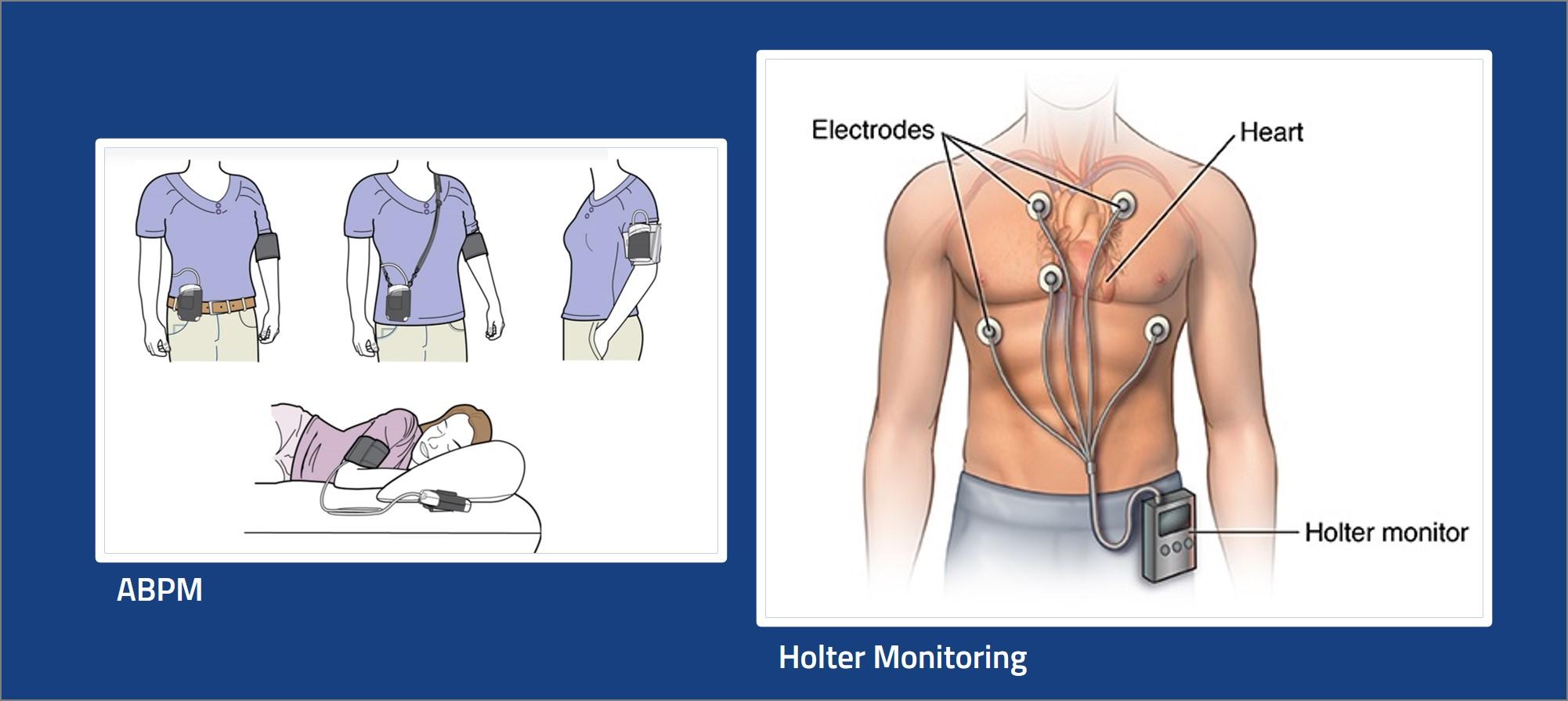What is Ambulatory Blood Pressure Monitoring?
Ambulatory Blood Pressure Monitoring (ABPM) is when your blood pressure is measured as you move around, living your normal daily life. It is measured for up to 24 hours. A small digital blood pressure monitor is attached to a belt around your waist and connected to a cuff around your upper arm. It is small enough not to affect your normal daily life and you can even sleep with it on.
What are the benefits?
By measuring your blood pressure at regular intervals up to 24 hours, your doctor is able to get a clear idea of how your blood pressure changes throughout the day.
Also, because you are able to carry on with your normal routine, it avoids the problems of ‘white coat’ syndrome (where your blood pressure rises because you are feeling anxious about being tested by the doctor.
Why do I need ABPM?
There are a number of reasons why we might need this:
- To establish a diagnosis of high blood pressure (hypertension)
- To help decide if blood pressure medication is required
- To further investigate people whose blood pressure is hard to control
- To see how well a patient’s blood pressure medicines are controlling blood pressure throughout the day
- To see what happens to a patient’s blood pressure at night
Specific care to be taken with ABPM
To allow the machine to work properly, it is important to make sure that the tube to the machine is not twisted or bent. It is recommended that you do not drive for the duration of your monitoring.
Also, just before the machine is about to take a reading, it will alert you. When this happens you should:
- Sit down if possible
- Keep the cuff at the same level as your heart
- Keep your arm still
- Do not talk during the recording
Preferably avoid showering or bathing during the period of measurement.
What is a Holter monitor?
A Holter monitor is a battery-operated portable device that measures and records your heart’s activity (ECG) continuously for 24 to 48 hours or longer depending on the type of monitoring used.
Just like ABPM the Holter monitor and other devices that record your ECG as you go about your daily activities are called ambulatory electrocardiograms.
Apart from above reasons mentioned for ABPM, you may be asked to wear a Holter monitor to see if you have a slow, fast or irregular (uneven) heartbeat.
The results of wearing a Holter monitor will help you and your doctor decide if you need more tests or medicines for your heart, or if you need a pacemaker or cardioversion procedure to restore a regular heart rhythm.


